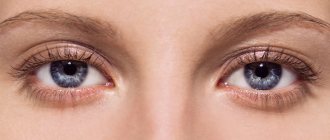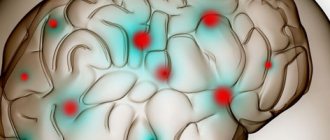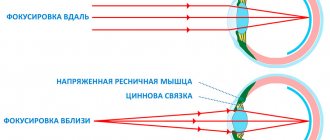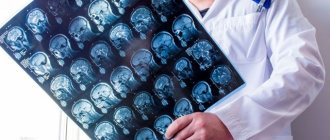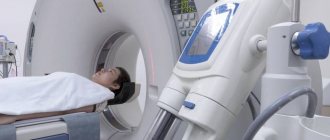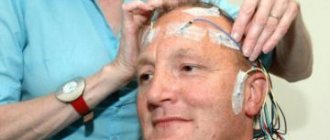Causes of drowsiness, headache, nausea and weakness
Drowsiness, headache, nausea are unpleasant symptoms that can bother the patient for a long time. They occur for various reasons, from simple fatigue or poisoning to the initial stages of brain diseases. It is impossible to carry out an accurate diagnosis on your own. The patient’s main task is to make an appointment with a doctor and answer questions about how and when the pain appeared, in what area it is located and what symptoms it is accompanied by.
Endocrine system diseases
One of the reasons for constant weakness and drowsiness, aching headaches is diseases of the endocrine organs. They are represented by organs that produce hormones into the blood and thereby participate in most biochemical processes in the body. Hormonal imbalance leads to poor health, headaches and other disorders.
- Diabetes mellitus is a disease characterized by insufficient levels of insulin produced by the pancreas in the blood. This leads to increased glucose concentrations, constant weakness, destruction of vascular walls and other long-term complications. The first symptoms of the disease include a constant feeling of thirst, weakness, dry mouth, and nausea. To confirm the diagnosis, blood glucose levels are measured.
- Hypothyroidism is a deficiency of thyroid hormones of any origin. In its mild form, it does not manifest any symptoms, but can also cause weakness, apathy, weight loss or gain, deepening of the voice, and the appearance of a goiter. Hypothyroidism occurs as a result of diseases or injuries of the thyroid gland, iodine deficiency in the diet, and also as a result of diseases of the pituitary gland.
In women, drowsiness, headache, weakness and nausea may occur in the first trimester of pregnancy due to toxicosis. Deterioration in well-being is provoked by the body’s adaptation to changes and restructuring of the immune system. In this case, it is important to avoid dehydration and undergo regular examinations with a doctor. In the first trimester of pregnancy, manifestations of toxicosis are allowed, but in the later stages this condition is not considered normal and requires hospitalization.
Intoxication
Poisoning with food, medicine or alcohol, gaseous substances is a dangerous condition that requires urgent medical attention. These compounds cause acute intoxication, nausea and weakness, and a sharp deterioration in health. Similar symptoms develop when bitten by poisonous animals or insects. They can be mildly expressed if a small amount of toxins enters the body. However, in high concentrations, toxic substances can cause damage to the nervous system and other dangerous consequences.
There are several types of poisoning, depending on the type of toxic substance and how it enters the body.
- Food poisoning is the most common type. In everyday life, they can occur in any person and quickly go away on their own. However, some types of poisonous plants, expired and perishable foods cause a vivid picture. The first recommendations are a water diet, taking sorbents and gastric lavage if necessary.
- Poisoning from medications and alcohol can also occur due to negligence. Toxins spread quickly through the blood and can cause damage to brain tissue. The danger comes from drinking large doses of alcohol once or drinking low-quality alcohol, as well as regularly drinking drinks, even in small quantities.
- Poisoning with poisonous mushrooms is one of the most dangerous causes of weakness, nausea and headaches. If your health worsens after eating even edible mushrooms, especially those collected yourself, you should urgently consult a doctor. The poisons contained in mushrooms cause toxic damage to the brain and can lead to disruption of vital functions.
- Poisoning by toxic gases is possible even at home. A natural gas leak may cause drowsiness, weakness, nausea, and headache. If these symptoms appear, it is urgent to provide access to oxygen and leave the room.
The pattern of various types of intoxication depends on the type of toxic substance and the method of its entry into the body, as well as on the severity of the symptoms. If there is a significant deterioration in health, hospitalization and a course to relieve intoxication are required. The only exceptions are mild forms of food poisoning, for which taking sorbents is sufficient.
Inner ear diseases
Headache is one of the first signs of inner ear diseases. This organ is responsible not only for hearing, but also for balance, and has a complex structure. It is formed by a bony labyrinth, within which there is a membranous labyrinth. Various hearing and balance disorders, as well as headaches and nausea, can be associated with diseases of the structures of the inner ear or the vestibular nerve - it is involved in the innervation of this organ.
- Meniere's disease is a chronic disease in which the production of endolymph, the fluid contents of the inner ear, increases. The pressure inside the labyrinth increases, which provokes attacks of acute headaches. The disease manifests itself in attacks that can last from several hours to days.
- Chronic otitis media is a dangerous disease that can cause purulent complications and even hearing loss. The pain can be localized on one side or spread to the entire surface of the head. With the development of purulent inflammation, characteristic discharge from the ear canal is observed.
- Inflammation of the vestibular nerve (vestibular neuritis) – often manifested by dizziness, nausea, and headache. Its symptoms gradually disappear over several weeks, subject to timely treatment.
Headache, nausea, weakness and dizziness are symptoms for which additional examination of the inner ear is prescribed. It is important to determine the source of pain and distinguish diseases of the organ of hearing from various disorders of the central nervous system.
Diseases of the cardiovascular system
Heart and vascular diseases are common among patients of any age. They can be congenital or acquired, occur in acute or chronic forms. Their causes include various anomalies in the structure of the heart and blood vessels, as well as injuries, inflammatory processes, and metabolic disorders. At risk are overweight patients who lead a sedentary lifestyle, as well as smokers. Frequent consumption of alcohol and poor nutrition can cause deterioration of blood vessels.
- Atherosclerosis is a chronic disease in which the walls of blood vessels become dense and insufficiently elastic. Deposits of various compounds, including cholesterol, appear on their inner wall. They narrow the vascular lumen, and insufficient blood flows to the hands and feet, as well as to the brain cells. There is also a risk of a blood clot breaking off and completely blocking the vessel.
- Hypertension is a persistent increase in blood pressure. If in a healthy person this figure remains within 120/80 mm. rt. Art. or may increase slightly, then with hypertension it is significantly higher. The condition threatens rapid fatigue of the heart muscle and stretching of the muscle layer of blood vessels. Blood pressure must be adjusted with medications to prevent myocardial infarction.
- Hypotension is low blood pressure. The condition is manifested by weakness, fatigue, decreased concentration and frequent headaches. With a sharp decrease in pressure, fainting is possible. For hypotension, it is important to dose the physical activity regimen and follow a diet to increase blood pressure. This disease is dangerous due to insufficient blood supply to the brain, which can cause ischemic stroke.
Doctors at the Clinical Brain Institute recommend periodically measuring your blood pressure yourself. In your home medicine cabinet you should definitely have a tonometer and medications to increase and decrease blood pressure. They are not recommended to be taken without a prescription, but during an attack they can be extremely useful for normalizing well-being.
Other reasons
Drowsiness, weakness, nausea and headache are common symptoms that can occur in a healthy person. They indicate severe fatigue, anxiety and stress, and disappear after proper rest. However, this condition may correspond to various diseases and disorders that require medical attention:
- migraine is a primary headache in which attacks can last from several hours to several days;
- iron deficiency in the body is one of the causes of anemia (lack of oxygen) and disruption of the formation of hemoglobin;
- sudden weight loss, including during stress or following strict diets;
- regular use of certain groups of drugs (antipsychotics, hormonal and painkillers, drugs to correct uric acid levels may have side effects);
- brain tumors are a dangerous but rare cause of headaches, weakness and drowsiness.
Doctors recommend monitoring your health. Constant weakness, drowsiness, decreased concentration - this is not a normal state. At home, it is worth adjusting your diet and including a sufficient amount of important vitamins and microelements in your diet. Additional medications are prescribed only based on the results of the examination.
What are the dangers of chronic lack of sleep?
- Decreased performance, problems at work and school.
- Deterioration of mood, depression, depression.
- Immunity decreases, tissue repair processes deteriorate, and metabolism slows down.
- The production of hormones is disrupted.
- The risk of developing cardiovascular diseases and diabetes increases.
- The risk of getting into a car accident increases by 2.5 times.
- Falling asleep while driving or at work has repeatedly been the cause of industrial accidents and man-made disasters.
- Sleep deficiency is the cause of almost a third of medical errors.
Causes of daytime sleepiness
- Obstructive sleep apnea syndrome. A chronic disease in which the airways become blocked during sleep and a person stops breathing until the brain commands the airways to open. There can be up to several hundred such breathing stops followed by micro-awakenings per night. Because of this, sleep loses its restorative function, and such patients most often come to the doctor with complaints: “Loud snoring disturbs loved ones,” “I always want to sleep,” “I can fall asleep while driving,” “I have a headache in the morning.” It is a very common condition, affecting 3–7% of adult men and 2–5% of women. (For comparison, about 8% of adults suffer from diabetes.) Obstructive sleep apnea is treated with CPAP therapy.
- Narcolepsy. This is a disease manifested by sudden uncontrollable falling asleep at any time and in any environment. With narcolepsy, a person suffers from irresistible “attacks” of sleep, and also experiences a constant desire to fall asleep, no matter how much sleep he has previously.
- Chronic pain. Severe pain makes it difficult to fall asleep, and sometimes even wakes the patient up.
- Diabetes. In diabetes mellitus, energy from glucose does not enter the cells, so the person feels tired and wants to sleep all the time.
- Hypothyroidism (low thyroid function). Thyroid hormones are involved in the regulation of activity. With a deficiency of these hormones, patients complain of decreased performance, lethargy and fatigue.
- Taking medications. Daytime sleepiness can be a side effect of some medications.
- Shift work schedule. People who work at night have their natural sleep-wake rhythm disrupted, so they often complain of extreme sleepiness during the night shift and problems falling asleep during the day.
Treatment of excessive sleepiness
If chronic sleepiness seriously reduces the quality of your life: you experience daytime sleepiness, fall asleep during activities that require concentration (for example, driving), cannot concentrate - do not neglect your condition, consult a doctor. To preliminary assess the degree of daytime sleepiness, there is a special test - the Epworth/Epforth Sleepiness Scale. If you score more than 9 points, you probably suffer from some kind of sleep disorder. Your doctor may refer you for a consultation with a somnologist and have your sleep disorders diagnosed in a sleep laboratory. If you are diagnosed with narcolepsy or obstructive sleep apnea, you will be given appropriate treatment - medication for narcolepsy or CPAP therapy for obstructive sleep apnea.
Diagnostic methods
At the Clinical Institute of the Brain you can undergo a full diagnosis, which will include examinations of any level. The first stage is a consultation with a therapist to identify complaints and prescribe further procedures. Next, an individual diagnostic scheme is selected, which may include the following methods:
- blood tests (general and biochemical) to determine inflammatory processes in the body, disruption of the functioning of individual organs and systems, measurement of hemoglobin levels;
- Ultrasound of internal organs, including the heart;
- electrocardiography – diagnosis of heart rhythm, one of the main ways to determine heart defects;
- MRI, CT scan of the brain - is prescribed for suspected neoplasms, the presence of areas of ischemia and other pathologies.
It is important to understand that competent and timely diagnosis is the key to successful treatment. The use of modern equipment, which is located at the Clinical Institute of the Brain, greatly simplifies the task and allows you to quickly make the correct diagnosis.
Causes of a special illness
Narcolepsy is a fairly rare disease (affects 1 person out of 2 thousand). It develops mainly in 20-50 year old men, but can also appear in childhood. Despite its low prevalence, this pathology is very dangerous, because an individual can suddenly fall asleep at any moment and anywhere while performing some action. Such an attack cannot be controlled and therefore interferes with normal activities - it is impossible to properly study, work, do everyday activities, or drive a car. All this negatively affects personal and social life. Children with this disease are developmentally delayed.
The sensations of those suffering from narcolepsy are similar to those experienced by people who have not slept for two days, and this reduces the quality of life.
Researchers cannot explain the exact cause of drowsiness syndrome, since it has not been studied enough due to its uniqueness. However, it turned out that psychological and psychiatric problems are not to blame.
Currently, the following factors for the development of the disease are called:
- heredity;
- lack of special genes of hypocretins (orexins) - neurotransmitters that ensure the transmission of signals to sleep and awakening in the brain;
- dysfunction of the immune system;
- overwork;
- severe infections;
- skull injuries;
- viral diseases;
- malfunctions of the endocrine glands, including the pituitary gland.
Sleepy during the day and at night, narcoleptics often have trouble falling asleep or constantly wake up. This is associated with abnormalities in the areas of the brain that regulate the main stages of sleep: the rapid phase occurs earlier than normal, and the deep phase is absent altogether.
Treatment methods
The treatment regimen is selected individually. Most patients are prescribed a course of medications to take at home. It is recommended to undergo repeated examinations periodically to monitor the dynamics of the disease. The course may include the following stages:
- drugs to increase or decrease blood pressure;
- a special diet for atherosclerosis, heart and vascular diseases, which excludes fatty foods, fried foods, salt and spices in large quantities;
- migraine pain relievers;
- antibiotics – prescribed for inflammation of the inner ear, for the treatment and prevention of purulent complications;
- A course of vitamins and microelements is selected based on the results of a blood test.
The Clinical Brain Institute offers an individual approach to each patient. Here you can undergo comprehensive diagnostics, receive recommendations from specialists with many years of experience, and also stay for treatment in a hospital setting.
Clinical Brain Institute Rating: 4/5 — 5 votes
Share article on social networks
